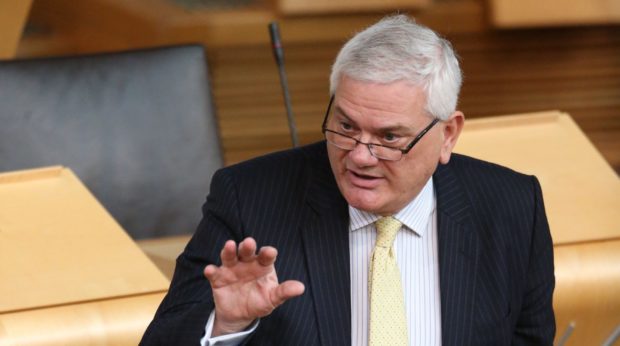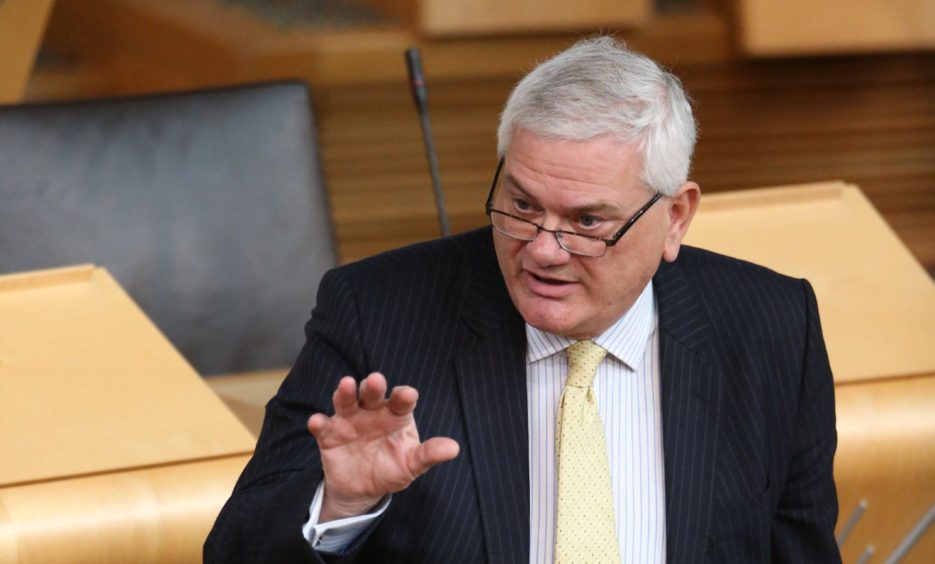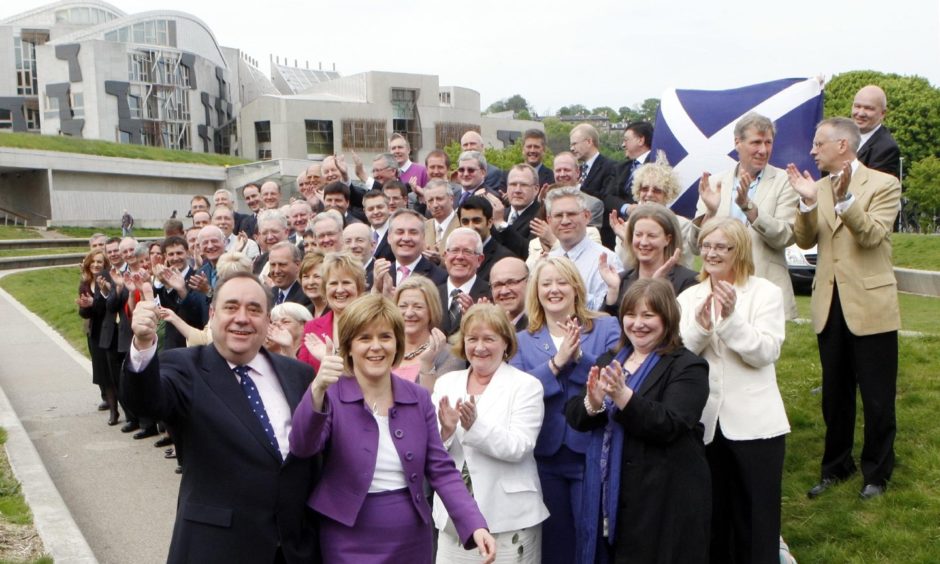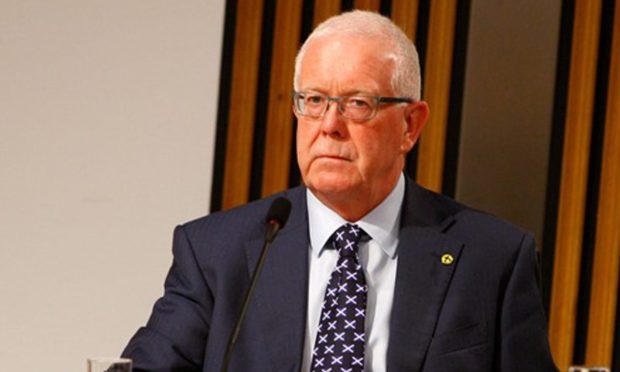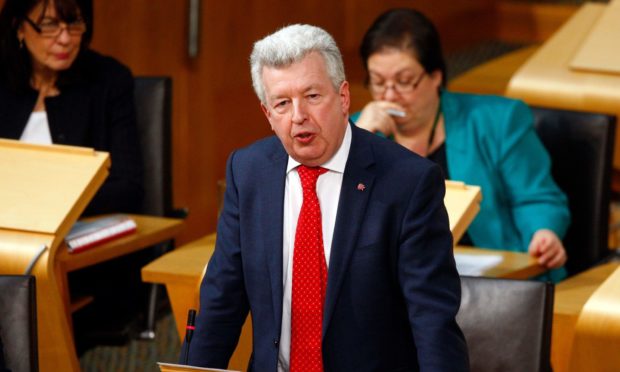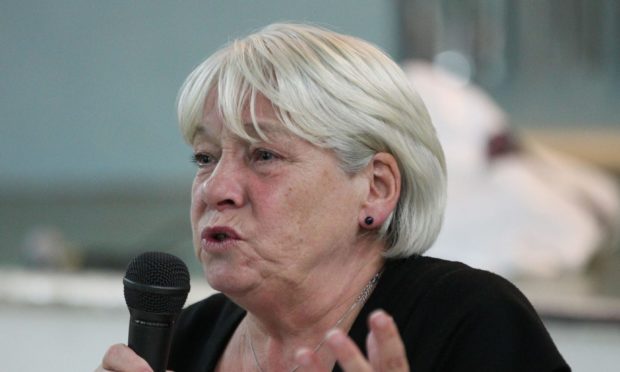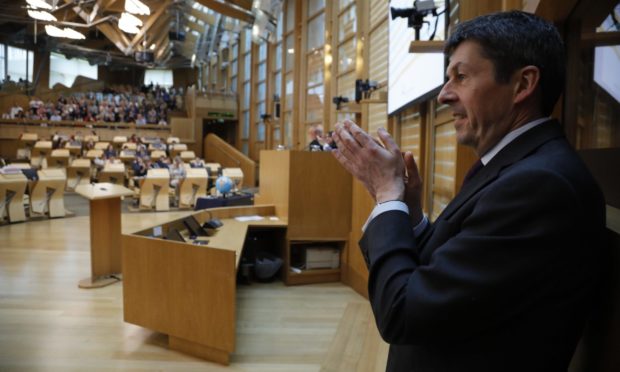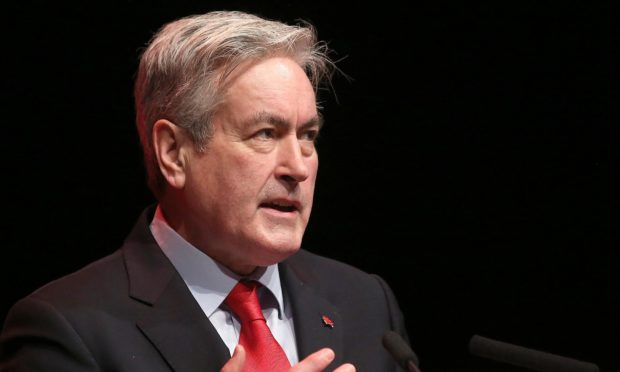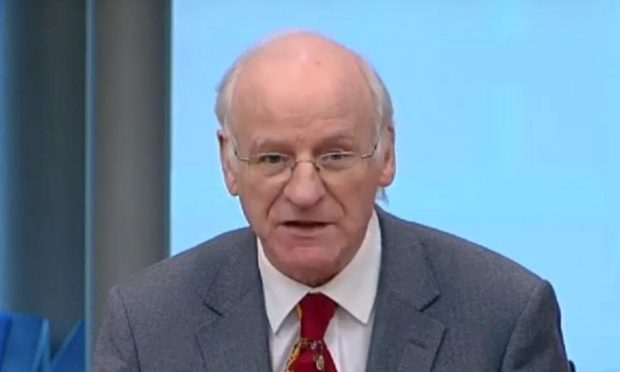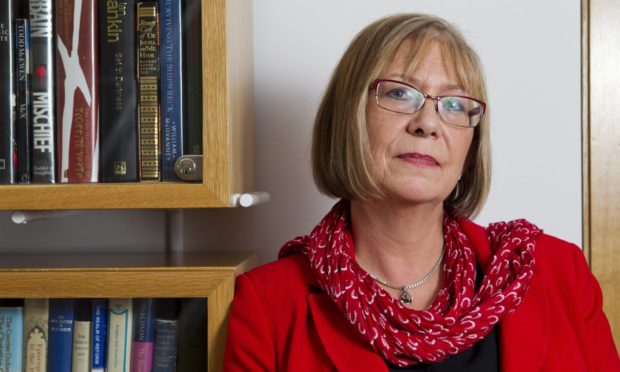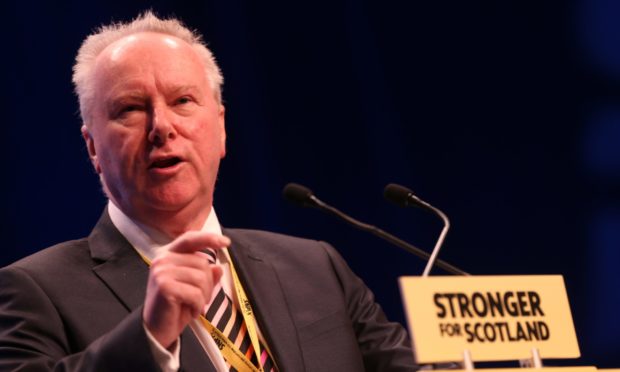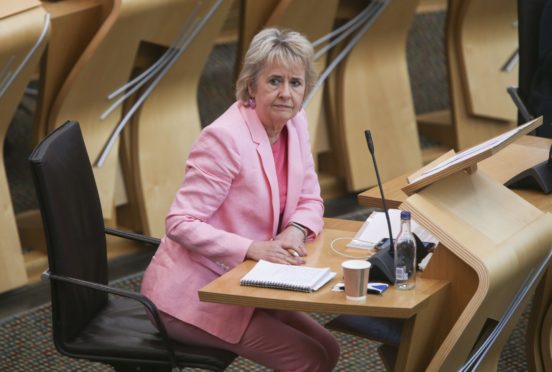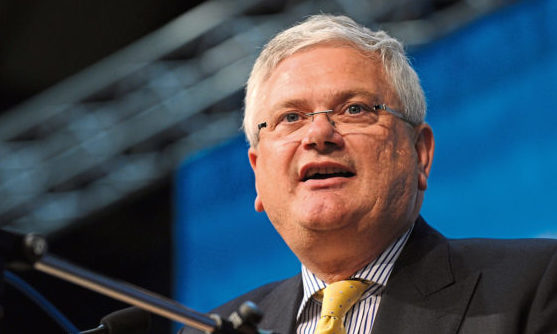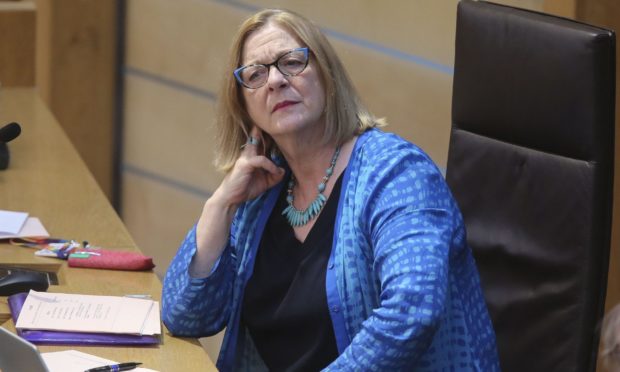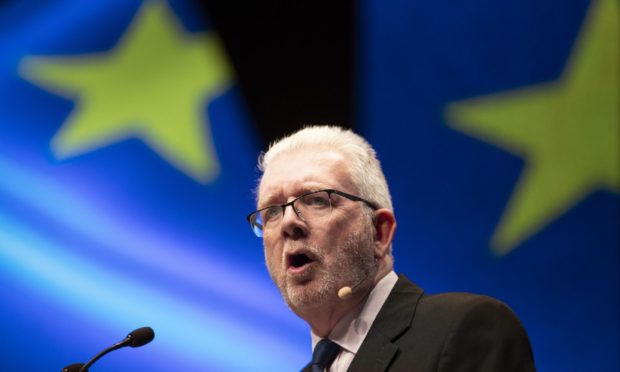The Scottish Parliament has experienced a “sea change” in recent years, according to Liberal Democrat MSP Mike Rumbles.
The north-east MSP described Holyrood as a “very partisan place” now and claimed it is one of the reasons he has chosen not to stand for re-election next year.
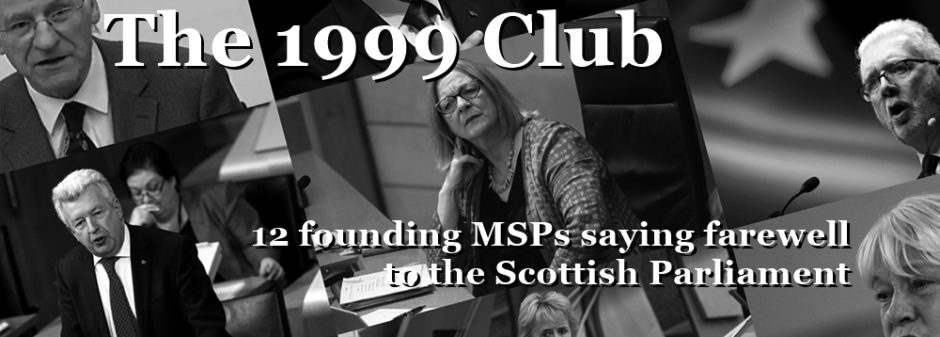
First elected in 1999 to represent Aberdeenshire West, the politician later lost his seat to the SNP in 2011.
It was only when he returned in 2016, as a regional list MSP for the north-east of Scotland, that he noticed the “huge difference” in the way parliament was operating, following the 2014 independence referendum.
Mr Russell said it was a “shock how partisan the parties had become”, with parties “voting on block and nobody dissenting”.
“It had changed dramatically and after one term as a regional MSP, I decided to call it a day,” he said.
“That was one of the reasons I’m not standing again.
“In the Liberal Democrats I have dissented from my own party and I’m quite prepared to vote in a different way from my own party.
“Quite recently I was the only MSP to vote against secondary legislation on Covid-19 because I thought it was wrong.
“I can’t be the only, in fact, I know I wasn’t the only, MSP to think this was wrong.”
‘Not good for democracy’
The 64-year-old believes the Scottish Parliament is lacking in “people of independent spirit” who disagree with their own party and it’s “not good for democracy”.
He added: “I’m not just singling out the government, I’m talking about all parties.
“I really do think it’s a real problem and I don’t see it being addressed.”
In politics, it sounds like it’s all about teamwork but I very quickly found it wasn’t. It’s very tribal.”
Before entering the world of politics, Mr Rumbles spent 15 years as an army officer, a position in which he was not allowed to express any political opinions.
Therefore he was like a “coiled spring” when he left his former career in 1994 and moved to Aberdeenshire, where he decided he wanted to get involved with the Liberal Democrats.
The two roles were “very different” with his life in the army based around teamwork and having the same objectives.
He said: “In politics, it sounds like it’s all about teamwork but I very quickly found it wasn’t. It’s very tribal.
“I think anybody coming into politics should have an outside life first so they can bring that experience to bear in the deliberations on making laws.
“As an individual you can really make a difference in politics and that’s what attracted me to politics in the first place.
“If you want to achieve change in the army you have to reach the heights and the levels of the general staff whereas in politics everybody, even a humble backbencher, if they play their cards right, can influence change in policy.”
Biography
Name: Mike Rumbles
Age: 64
Party: Scottish Liberal Democrats
Member: North East Scotland
Born: South Shields, England
Education: Graduated with a BEd from Sunderland University; studied economics at Aberystwyth University and employment law at Leicester University
Career: Served in the Royal Army Education Corps, retiring as an officer in 1994
Political career: Elected to represent West Aberdeenshire and Kincardine (1999-2011)
The Scottish Liberal Democrat MSP believes there has been a “sea change” in Scottish politics in the 21 years.
He said: “When I got elected in 1999 we were all talking about devolution and making devolution work, even the Conservatives who had opposed the establishment of the Scottish Parliament changed their mind.
“So we were in a situation where everybody wanted to make it work.
“I realised that, actually, the party in government was not interested in making the devolved Scottish Parliament work.
“It wants something different and everything it does is based on that, which is shackling the real good work that parliament could be doing.
“The sea change is that 21 years ago nobody thought nationalism would have such an effect on Scottish politics and that’s the biggest change.”
The MSP said the SNP has relied on a “constant mantra” that looks to blame the Westminster government for holding Scotland back.
However, Mr Rumbles claims the record of the SNP government “hasn’t been good” in the devolved areas in which they govern.
He said: “That’s the real difference and the Scottish population have believed that and we’ll soon see what happens.
“If we have elections next May, and they’re not delayed, we will soon see the proof of the pudding; whether the Scottish people continue to do that.”
Indeed, the north-east politician emphatically believes the Scottish Parliament has not met its potential and claims the SNP government has not been willing to do “radical things”.
“The potential of our parliament was to get devolved issues right whereas the focus of the Scottish Government has not been on devolved issues,” he added.
“Before Covid-19 came along we had one priority and it was always this one issue of independence.
“It’s all very well saying the parliament hasn’t reached its potential. The parliament itself can’t really initiate policy changes and the Scottish Government has been rather timid on what it wants to do over the last year. The potential is huge but we haven’t utilised yet.”
